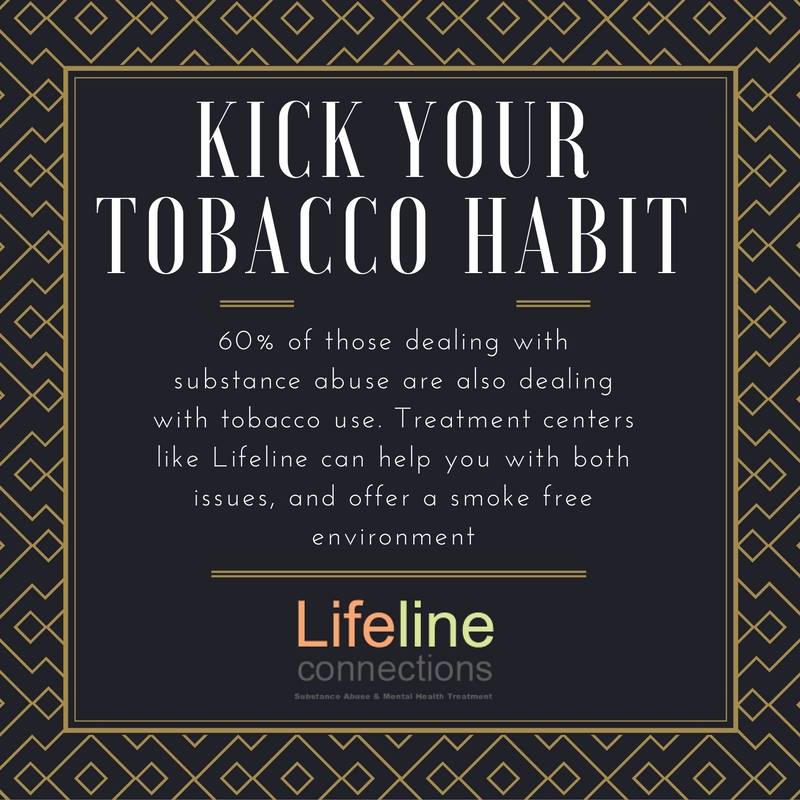
The Benefits and Success of Treating Tobacco Use with Substance Use
It’s common knowledge that tobacco use in the US has drastically fallen in the past few decades. However, tobacco use rates among those struggling with substance abuse remain exceptionally high. For example, over 60% of people with a substance abuse disorder have used tobacco in the last month, compared to 25% of people in the general public.
Why quit tobacco? After all, it may not affect your work, family life, or lifestyle the way that other substance use disorders do; but there are many other reasons. Smoking causes respiratory issues, such as coughing and wheezing, which can also lead to lung infections. On top of that, there is a greatly increased risk of heart disease, stroke, and, of course, several different types of cancer.
While tobacco remains as one of the most addictive and physically damaging substances, there is hope for living a life free of dependence to tobacco, and reducing your risks for all of these potentially fatal side effects.
When cessation begins, there are many withdrawal symptoms. Many are similar to withdrawal symptoms from other substances such as depression, irritability, increased appetite, and restlessness. These physiological conditions usually last only about a week, but the psychological conditions, such as anxiety, last for up to years later.
The good news about all of this dismal information is that there is so much hope! If you are struggling to kick your tobacco addiction, not only can you recover, but your body can heal to a place as if you had never smoked or used tobacco at all!
So what are some things you can do?
Well, as always, ask for help. We are here for you at Lifeline Connections. Our residential treatment option for substance use offers a smoke free environment. Additionally, if you are having any sort of trouble quitting a tobacco habit, we will provide whatever support you need. We offer counseling, massage therapy, pet therapy, as well as an exercise room. Utilizing all of these resources can be very productive ways to quit.
However, if you are not in need of an immersive residential treatment environment, consider these other options: You can try typical counseling and support groups. With these options, you can not only identify your triggers and deal with negative side effects from quitting, but you can also find a community of supporters to help you along the way. You can also use 1-800-QUIT NOW as a resource for education and support.
Many people ask their healthcare providers about cessation medications. While these can be helpful, they do not necessarily replace the long-lasting effects of therapy and social support. Like any addiction, it is very difficult to quit alone even with the assistance of a medication.
We are ready to help you. Give us a call or send us an email if you feel you are ready to get help for your substance abuse disorder.
Phone: 360-397-8246 ext. 7580
Email: admission_office@lifelineconnections.org
